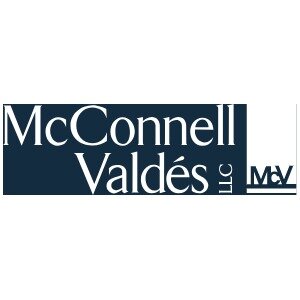Best Landlord & Tenant Lawyers in San Juan
Share your needs with us, get contacted by law firms.
Free. Takes 2 min.
Free Guide to Hiring a Real Estate Lawyer
List of the best lawyers in San Juan, Puerto Rico
About Landlord & Tenant Law in San Juan, Puerto Rico
Landlord and tenant law in San Juan, Puerto Rico, is governed by a combination of local and commonwealth regulations. This branch of law focuses on the agreements and disputes between property owners (landlords) and those renting their property (tenants). In San Juan, rental agreements can be either verbal or written, but many protection mechanisms for both parties are explicitly stated in written leases. It's crucial for both landlords and tenants to understand their rights and obligations to maintain harmonious relationships and resolve any disputes effectively.
Why You May Need a Lawyer
Several situations might necessitate the assistance of a landlord-tenant lawyer in San Juan, Puerto Rico:
- Lease Disputes: Issues such as lease violations, rent increases, or changes in lease terms can require legal interpretation and negotiation.
- Eviction Proceedings: Whether facing eviction or needing to evict a tenant, navigating the legal system to ensure compliance with Puerto Rican law is crucial.
- Property Repairs and Maintenance: Disputes over responsibility for repairs or maintenance can lead to legal action if not addressed promptly and fairly.
- Security Deposits: Disagreements over the handling and return of security deposits often require legal clarity and can lead to court disputes.
- Tenant Rights Violations: Tenants may need legal assistance if they believe their rights have been violated by a landlord, such as through illegal entry or discrimination.
- Rent Control and Subsidies: Lawyers can help navigate the specific rules and qualifications for rent-controlled properties or government subsidies particular to Puerto Rico.
Local Laws Overview
Key aspects of San Juan's landlord-tenant laws include:
- Rental Agreements: Though not mandatory, having a written agreement is highly recommended and should outline terms such as rent payments, lease duration, and house rules.
- Rent Payments: The timing and method of rent payments should be clearly articulated in the lease agreement. Late payment fees must be specified in writing.
- Evictions: Landlords must follow a legal process to evict tenants, which typically requires giving due notice and obtaining a court order.
- Maintenance and Repairs: Landlords are generally responsible for maintaining livable conditions, while tenants should keep their rental unit clean and undamaged.
- Privacy and Entry: Landlords must provide reasonable notice to enter a tenant's property, except in emergencies.
- Security Deposits: Regulations specify the handling of security deposits, including their amount, use, and conditions for withholding upon lease termination.
Frequently Asked Questions
1. What should be included in a rental agreement in San Juan?
A comprehensive rental agreement should include the rent amount, payment terms, lease duration, security deposit details, maintenance responsibilities, and house rules.
2. How much notice must a landlord give before entering a rental property?
Landlords typically must provide reasonable notice, often 24 hours, unless it's an emergency situation requiring immediate entry.
3. What steps should a tenant take if the landlord is not making necessary repairs?
Tenants should notify the landlord in writing regarding the needed repairs. If the landlord fails to address the issue in a reasonable time, tenants may withhold rent, arrange repairs themselves, or seek legal advice.
4. Can a landlord increase rent arbitrarily during the lease term?
No, rent increases during a lease term are generally prohibited unless explicitly allowed in the lease agreement. Landlords must also provide adequate notice for any increase, typically at least 30 days.
5. Under what conditions can a landlord terminate a lease?
Landlords can terminate a lease for reasons including breach of lease terms, nonpayment of rent, or if the property is being removed from the rental market. Appropriate notice is required, and eviction may require a court order.
6. What protections do tenants have against eviction?
Tenants in San Juan are protected against unlawful evictions and have rights to due process, including receiving notice and having the opportunity to contest eviction in court.
7. How is the security deposit handled at the end of a lease?
The security deposit must be returned within a specified period after the lease ends, less any lawful deductions for unpaid rent or damage beyond normal wear and tear.
8. Are there specific tenant protection laws in San Juan?
Yes, various local and commonwealth laws protect tenant rights, including those covering discrimination, housing standards, and eviction procedures.
9. Can tenants refuse to pay rent if repairs are not made?
While tenants have the right to withhold rent under certain circumstances, it's advisable to pursue this course of action with legal guidance to avoid potential eviction for nonpayment.
10. Where can disputes between landlords and tenants be resolved?
Disputes can often be resolved through mediation, but legal disputes typically go through the local courts in Puerto Rico.
Additional Resources
For further assistance or to gain a better understanding of landlord-tenant laws in San Juan, consider reaching out to:
- Ponce Neighborhood Legal Services: A local resource providing legal aid for low-income individuals facing housing issues.
- Departamento de la Vivienda (Department of Housing): Offers information and assistance regarding public housing policies and tenant rights.
- Centro de Mediación de Conflictos: Offers mediation services that can help resolve disputes outside of court.
Next Steps
If you need legal assistance for a landlord-tenant issue in San Juan, Puerto Rico, consider the following steps:
- Review your lease agreement thoroughly to understand your rights and obligations.
- Maintain good communication with your landlord or tenant to prevent misunderstandings.
- Document all interactions, repairs, or issues that might lead to a dispute.
- Consult with a qualified landlord-tenant attorney to explore your legal options.
- Utilize resources such as legal aid offices or tenant-rights organizations for support and guidance.
Lawzana helps you find the best lawyers and law firms in San Juan through a curated and pre-screened list of qualified legal professionals. Our platform offers rankings and detailed profiles of attorneys and law firms, allowing you to compare based on practice areas, including Landlord & Tenant, experience, and client feedback.
Each profile includes a description of the firm's areas of practice, client reviews, team members and partners, year of establishment, spoken languages, office locations, contact information, social media presence, and any published articles or resources. Most firms on our platform speak English and are experienced in both local and international legal matters.
Get a quote from top-rated law firms in San Juan, Puerto Rico — quickly, securely, and without unnecessary hassle.
Disclaimer:
The information provided on this page is for general informational purposes only and does not constitute legal advice. While we strive to ensure the accuracy and relevance of the content, legal information may change over time, and interpretations of the law can vary. You should always consult with a qualified legal professional for advice specific to your situation.
We disclaim all liability for actions taken or not taken based on the content of this page. If you believe any information is incorrect or outdated, please contact us, and we will review and update it where appropriate.









